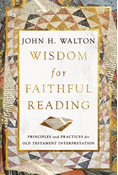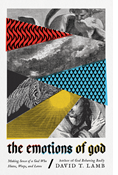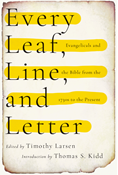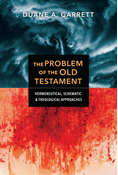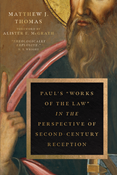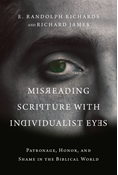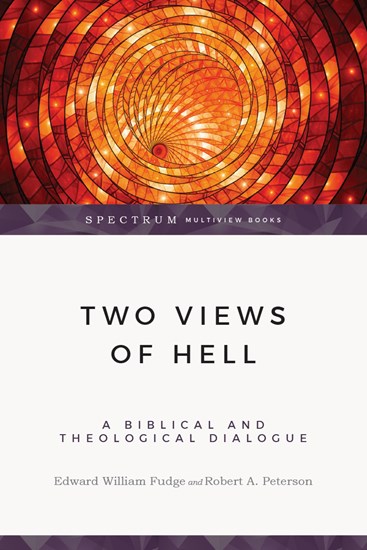
|
Two Views of Hell
paperback
|
- Length: 228 pages
- Dimensions: 5.5 × 8.25 in
- Published: April 10, 2000
- Imprint: IVP Academic
- Item Code: 2255
- ISBN: 9780830822553
-
Other Retailers:
Amazon*
*affiliate partner
Hell is real and terrible. It is the fate of those who reject God. Evangelicals agree about this unhappy truth. Yet on some questions about hell disagreements arise.
Some evangelicals believe the wicked will experience perpetual, conscious torment after death. Others argue that the wicked will experience a limited period of conscious punishment and then they will cease to exist.
In this Spectrum Multiview volume you will find an irenic yet frank debate between two evangelical theologians who present strong scriptural and theological evidence for and against each view. Both make a case that their view is more consistent with Scripture and with the holy and just nature of a loving God.
Robert Peterson defends the traditional view that those who do not have faith in Christ will suffer eternally in hell. Edward Fudge advocates the conditionalist perspective that after a period of suffering, the unfaithful will experience a complete extinguishing, or annihilation, of existence. In addition, each author presents a rebuttal to the viewpoint of the other.
Here is a dialogue that will inform and challenge those on both sides, while impressing on all the need for faithful proclamation of the gospel of deliverance from sin and death.
Spectrum Multiview Books offer a range of viewpoints on contested topics within Christianity, giving contributors the opportunity to present their position and also respond to others in this dynamic publishing format.
"The book is much needed. The debate over the nature of hell shows no sign of going away, and this book gives a good and thorough presentation of both sides in just over two hundred pages. I hope it receives a wide and careful reading."
"Fudge and Peterson . . . have produced a clear and readable account of the biblical grounds for their positions. Fudge's interpretations of the scriptural data is plausible as is Peterson's and neither can dismiss the other by claiming that Scripture clearly supports their view. This book serves well the purpose of laying out the exegetical grounds for both sides."
"A very worthwhile book, especially since it gives both sides of the argument. This gives the book a fairness that should be appreciated."
CONTENTS
Acknowledgments
Introduction: What's All the Fuss About?
PART ONE: THE CASE FOR CONDITIONALISM
by Edward William Fudge
1. An Introduction to Conditionalism
2. The Old Testament
3. The Teachings of Jesus
4. The Writings of Paul
5. The Rest of the New Testament
6. A Final Word
A Traditionalist Response to Conditionalism
by Robert A. Peterson
PART TWO: THE CASE FOR TRADITIONALISM
by Robert A. Peterson
7. The Road to Traditionalism: History
8. The Foundation of the House: Scripture
9. Seeing the Big Picture: Theology
A Conditionalist Response to Traditionalism
by Edward William Fudge
Notes
Indexes
You May Also Like

